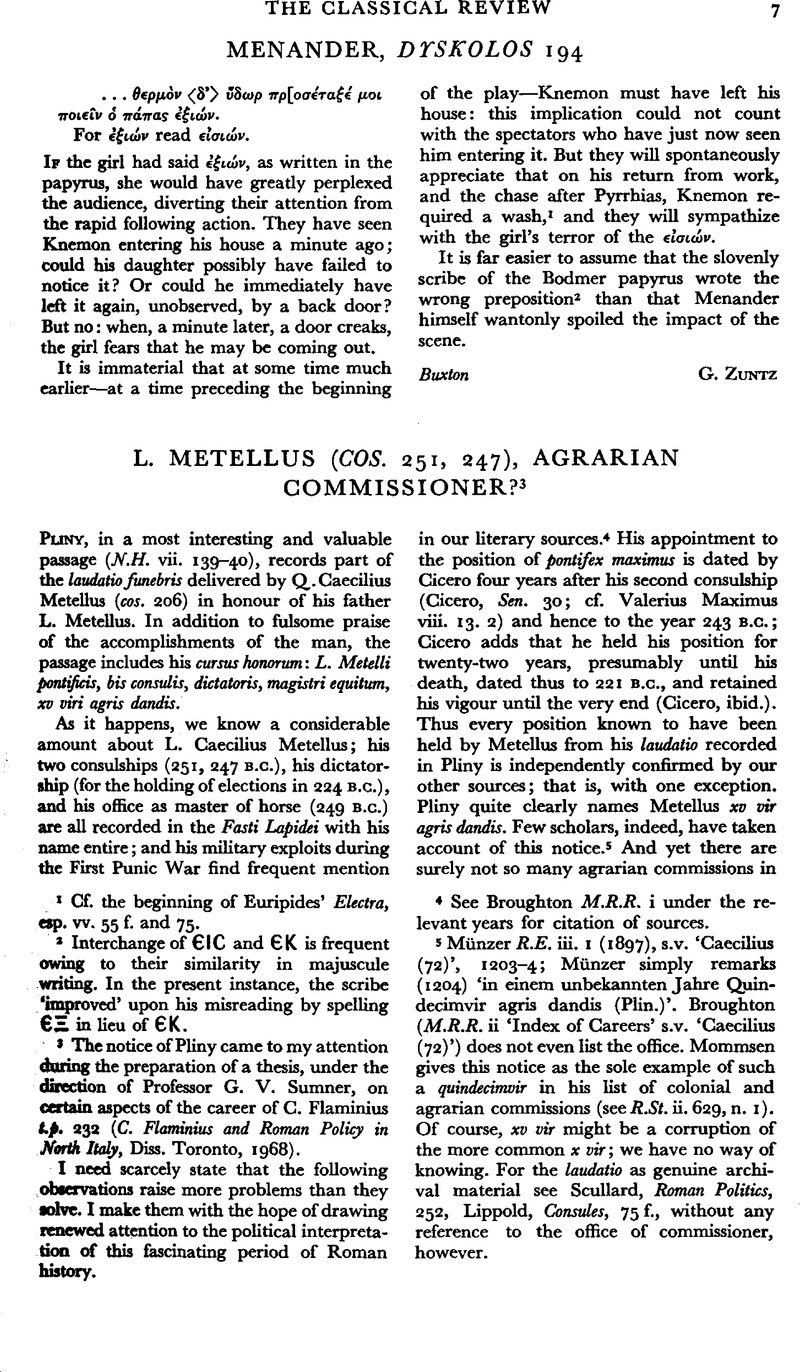No CrossRef data available.
Article contents
L. Metellus (COS. 251, 247), Agrarian Commissioner?3
Published online by Cambridge University Press: 27 February 2009
Abstract

- Type
- Review Article
- Information
- Copyright
- Copyright © The Classical Association 1970
References
page 7 note 4 See Broughton M.R.R. i under the relevant years for citation of sources.
page 7 note 5 Münzer R.E. iii. 1 (1897), s.v. ‘Caecilius (72)’, 1203–4; Münzer simply remarks (1204) ‘in einem unbekannten Jahre Quindecimvir agris dandis (Plin.)’. Broughton (M.R.R. ii ‘Index of Careers’ s.v. ‘Caecilius (72)’) does not even list the office. Mommsen gives this notice as the sole example of such a quindecinvir in his list of colonial and agrarian commissions (see R.St. ii. 629, n. 1). Of course, xv vir might be a corruption of the more common x vir; we have no way of knowing. For the laudatio as genuine archival material see Scullard, Roman Politics, 252, Lippold, Consoles, 75 f., without any reference to the office of commissioner, however.
page 8 note 1 Assuming, of course, that there was such a commission, an assumption which does not seem unduly bold, though the question cannot be argued here.
page 8 note 2 For the distribution of the Sabine territory conquered by Curius Dentatus in 290 B.C. see Formi, G., Athenaeum, N.s. xxxi (1953). 193–204.Google Scholar
page 8 note 3 Unless the reading of Pliny (N.H. vii. 139) is corrupt; see p. 7, n. 5, above.
page 8 note 4 Compare e.g. Livy vi. 21. 4: quinqueviros Pomptino agro dividendo; xxxi. 4. 2 decemviros agro Samniti Apuloque … metiendo dividendoque. For other titles of agrarian commissions see Mommsen R.St. ii. 628–9 with notes; 633 n. 4.
page 8 note 5 See Broughton, M.R.R. i under the years 224 and 223.


